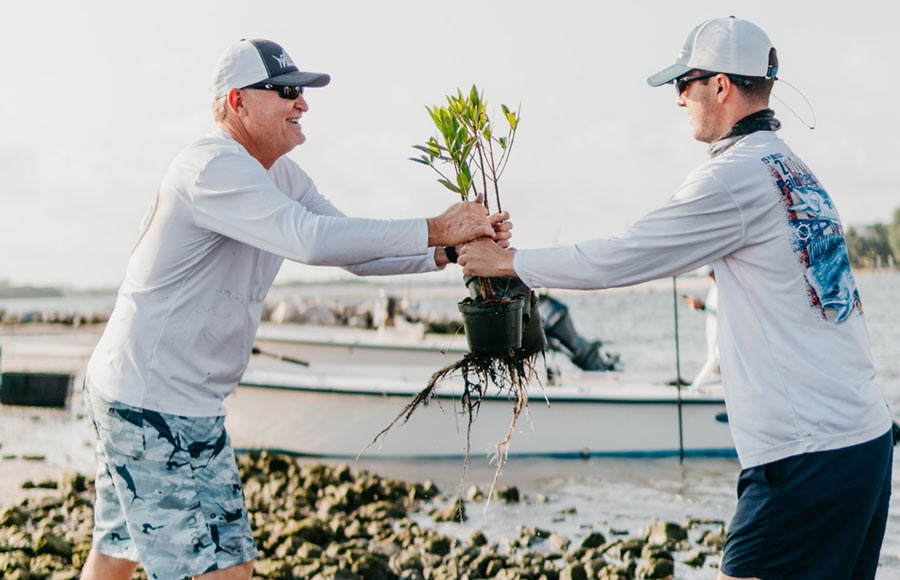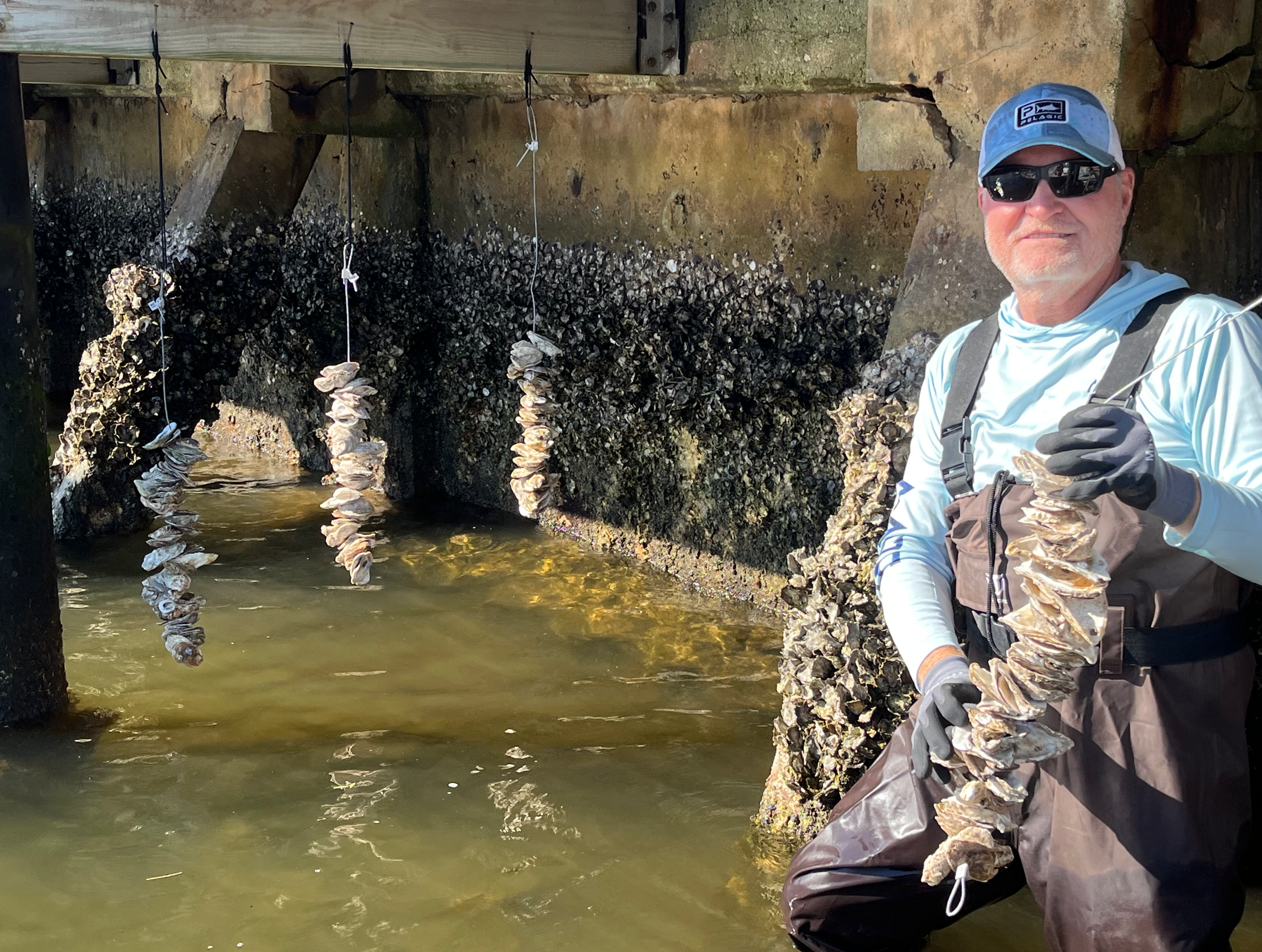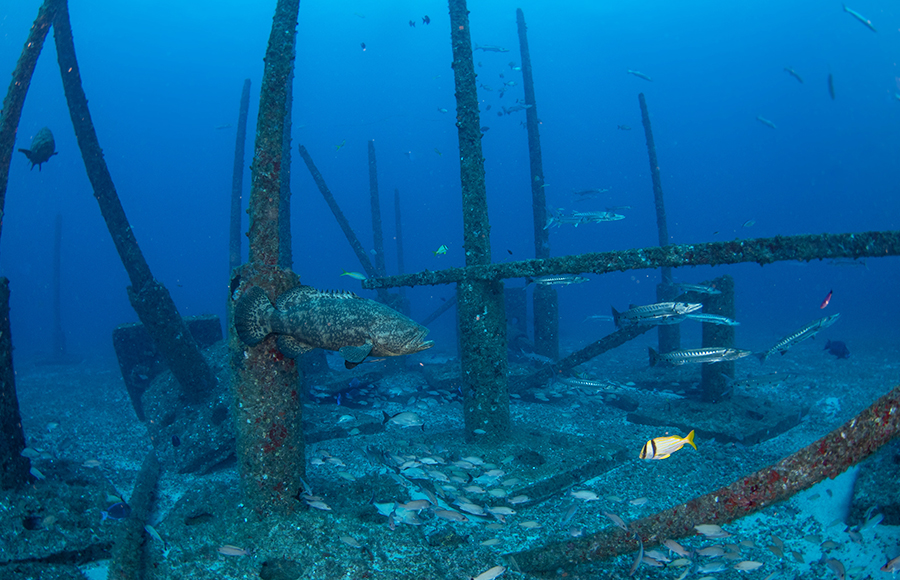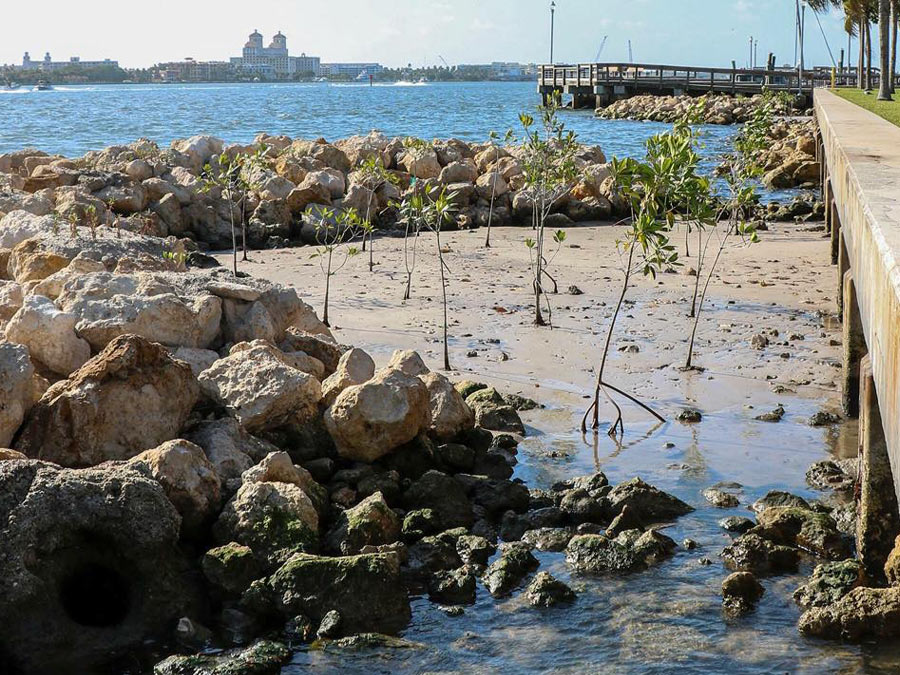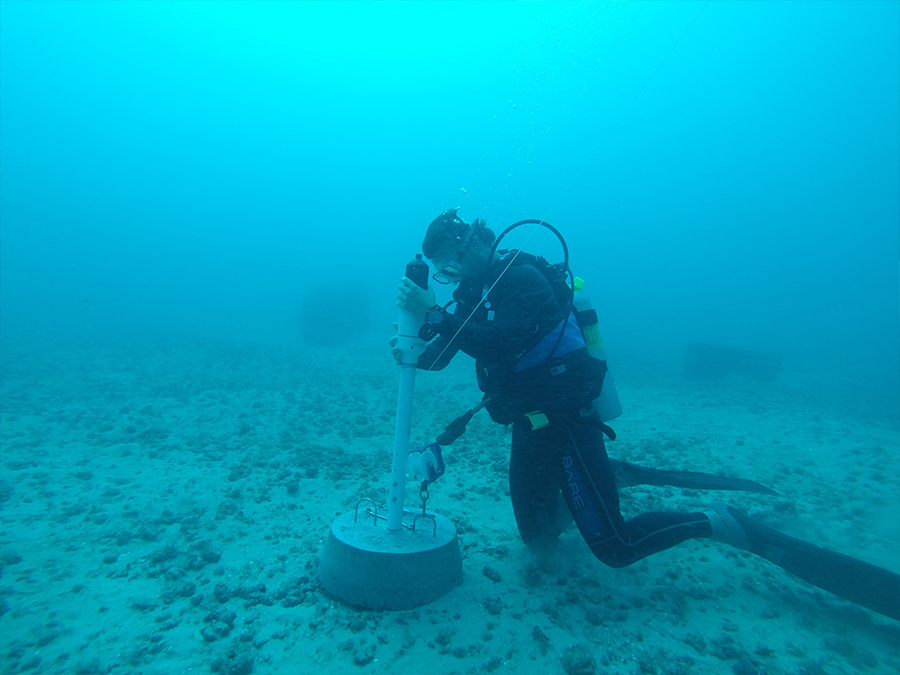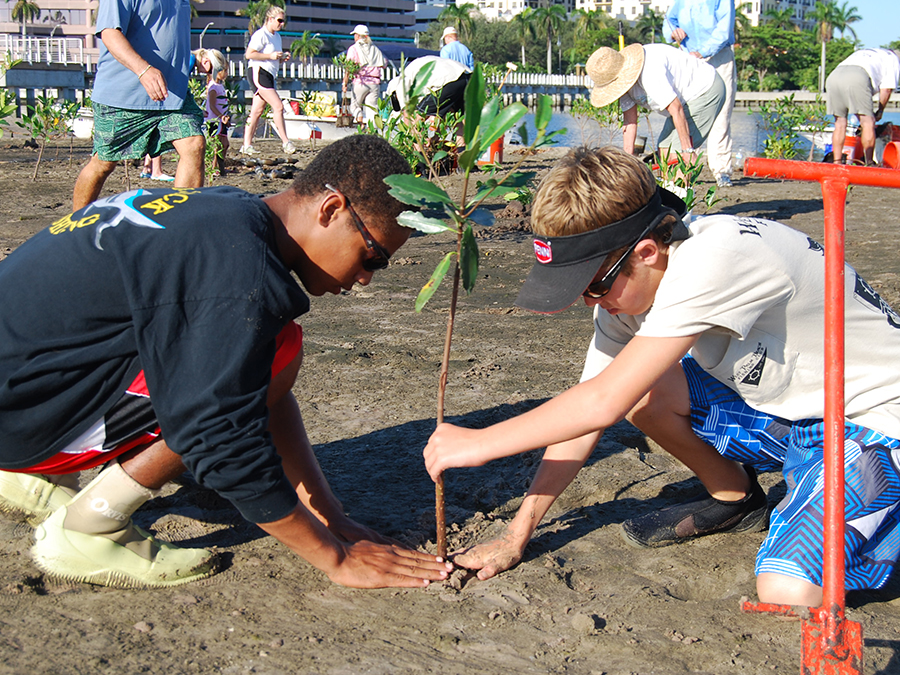Habitat Initiatives & Enhancement
Palm Beach County has experienced tremendous coastal growth over the last seventy-five years.
As a result, loss of natural marine and estuarine habitat, diminished water quality, increased fishing pressure and other environmental stressors have all contributed to a depletion of biodiversity and abundance. The PBCFF has identified and helped initiate specific projects designed to help improve our marine environment. In the 1960s, under the leadership of John Rybovich, the West Palm Beach Fishing Club created Palm Beach County’s first artificial reef. The PBCFF remains actively involved and has been a frequent partner with Palm Beach County’s Department of Environmental Resources Management on reef building projects. Another area of focus has been habitat enhancement in the Lake Worth Lagoon. Over 85% of this area’s mangrove fringe, mud flats, and oyster & sea grass beds have been destroyed or altered due to bulkhead development, dredge and fill operations and degraded water quality. The PBCFF regularly assists with mangrove and oyster enhancement projects. This program aiding local governmental efforts to improve the Lake Worth Lagoon represents a valuable public/private partnership to the benefit of all taxpayers. The potential to mitigate environmental damage and increase healthy habitat is significant. The PBCFF will continue to play an important role.
OYSTER SHELL RECYCLING & RESTORATION
In 2025 the PBCFF initiated an oyster shell recycling and restoration program. While recycling programs exist in other regions, no such program was in place in Palm Beach County. The reasons for recycling oyster shells are many. Most restaurants throw their oyster shells away. The shells have a far better use then to end up in a landfill. Recycled oyster shells provide an ideal substrate for the recruitment of new oysters. Oysters are considered a keystone species and provide valuable ecosystem services. Oysters are filter-feeders and can clean large volumes of water over a relatively short period of time helping rid estuaries of excess nutrients and fine sediment. Oyster reefs provide critical habitat for a wide variety fish, invertebrates and other wildlife. Additionally, oyster reefs can help stabilize shorelines and minimize coastal erosionIn 2025 the PBCFF initiated an oyster shell recycling and restoration program. While recycling programs exist in other regions, no such program was in place in Palm Beach County. The reasons for recycling oyster shells are many. Most restaurants throw their oyster shells away. The shells have a far better use then to end up in a landfill. Recycled oyster shells provide an ideal substrate for the recruitment of new oysters. Oysters are considered a keystone species and provide valuable ecosystem services. Oysters are filter-feeders and can clean large volumes of water over a relatively short period of time helping rid estuaries of excess nutrients and fine sediment. Oyster reefs provide critical habitat for a wide variety fish, invertebrates and other wildlife. Additionally, oyster reefs can help stabilize shorelines and minimize coastal erosion.
Oysters have been severely impacted by coastal development and degraded water quality. There is a need to enhance oyster habitat in the Lake Worth Lagoon and its adjacent waters in Palm Beach County. With the financial and logistical aid of community partners and support from community volunteers the PBCFF’s oyster shell recycling and restoration program intends to reduce the number of shells going into our landfill and increase oyster habitat in the Lake Worth Lagoon and other Palm Beach County waters. Improving water quality and clarity is our goal.
Reef Darts
In 2017, the PBCFF initiated its Reef Dart program, an innovative reef building effort using repurposed concrete utility poles and culverts that might otherwise end up in area land fills. Surplus materials were donated by local contractors, utility companies, municipalities and the county. Financial donations from the private sector covered engineering, construction, monitoring and other costs. Palm Beach County, a project partner, handled the permitting and deployment costs. When deployed, Reef Darts settle in a vertical orientation on the sea floor creating high profile marine fish habitat where none previously existed. Each Reef Dart weighs approximately 8 to 10 tons, some measuring over 45 feet in height. Reef Darts provide critical fish habitat and fishing reefs that can be deployed in all depths of water. Baitfish, amberjack, barracuda, snapper and grouper, along with invertebrates, are among the species benefitting from previous deployments.
A total of 181 Reef Darts have been deployed offshore Palm Beach County. Our Reef Dart forest has created beneficial high-relief habitat for a wide variety of marine fish and invertebrates. Concluded in 2024, the underwater forest we developed will be providing beneficial habitat for many decades to come.
